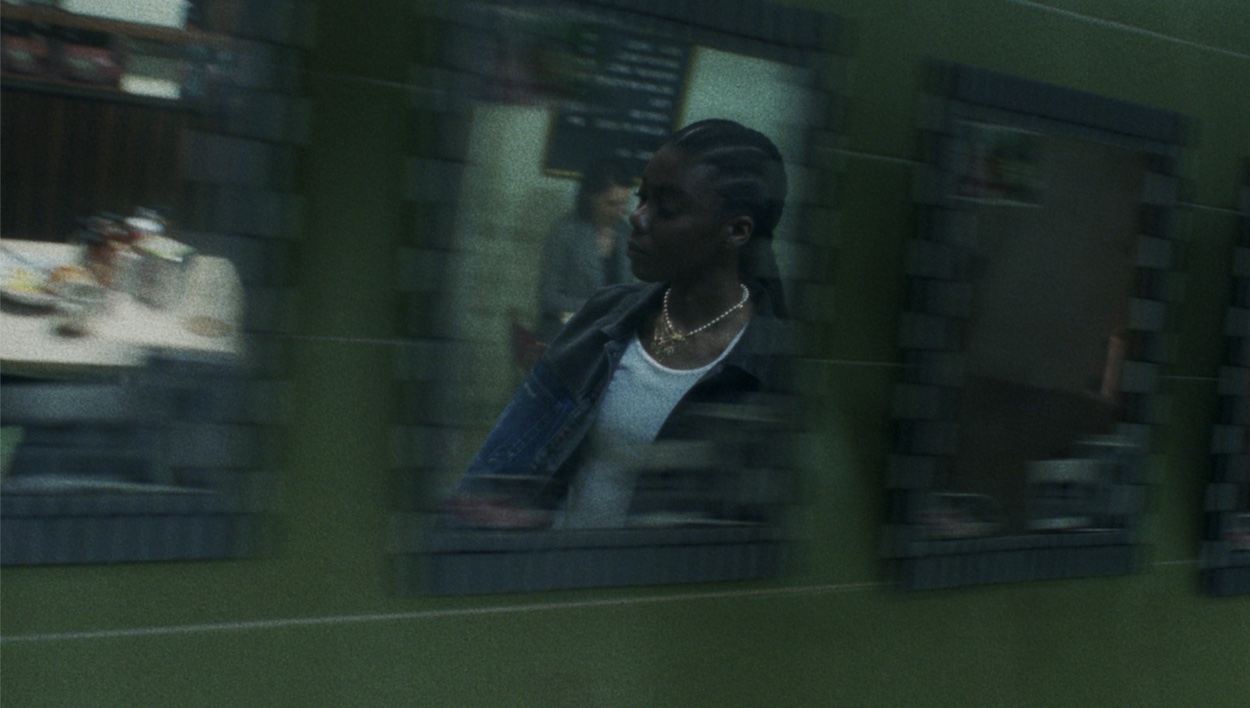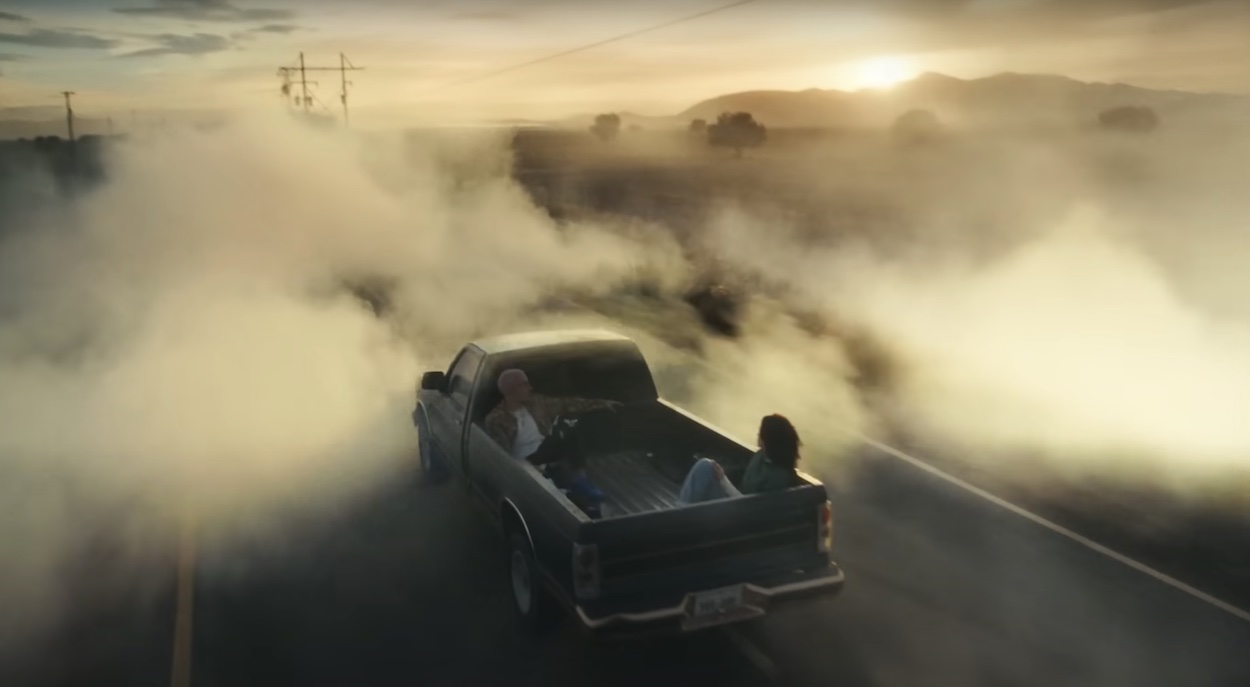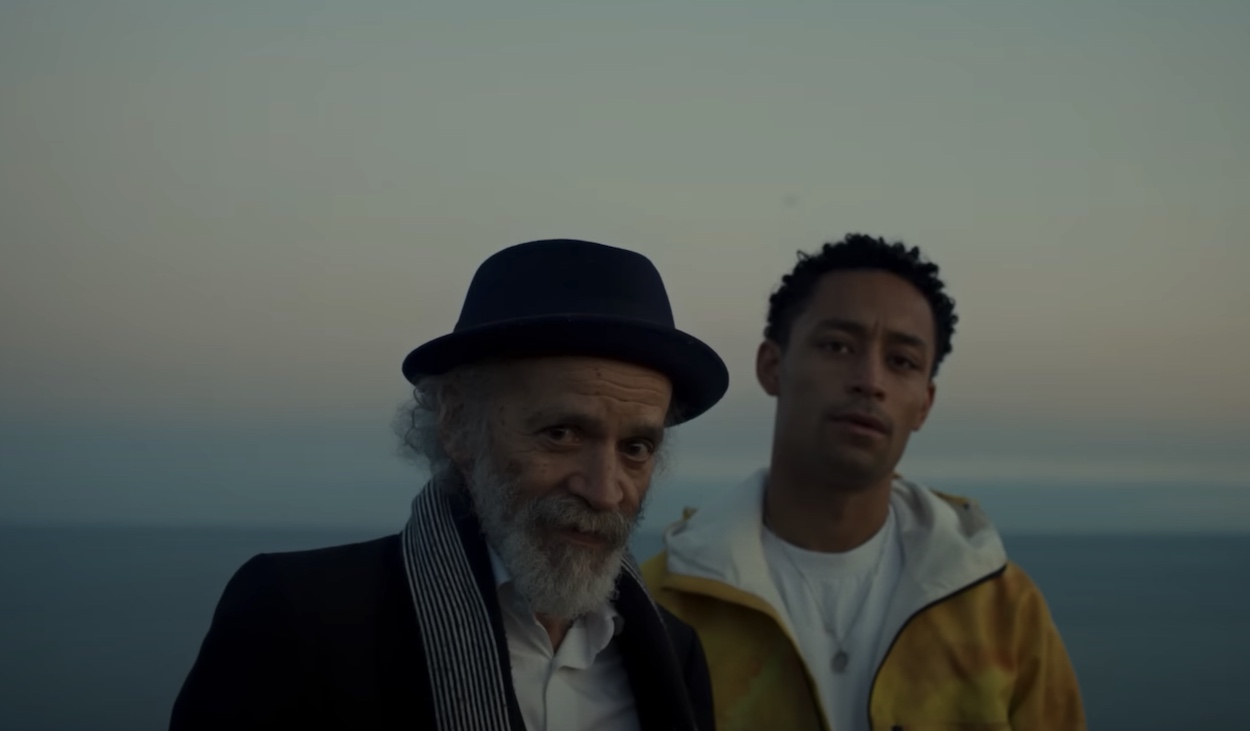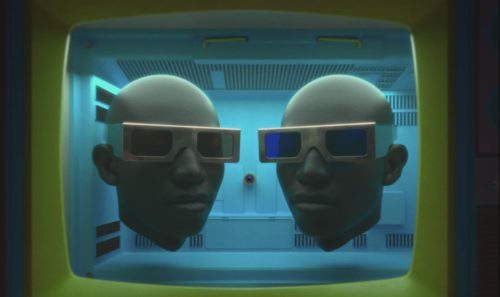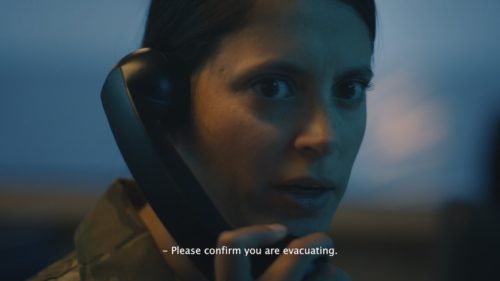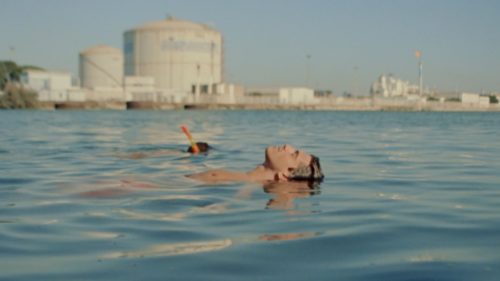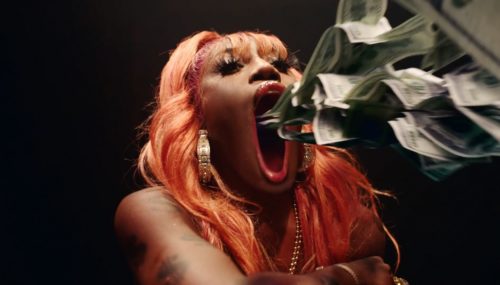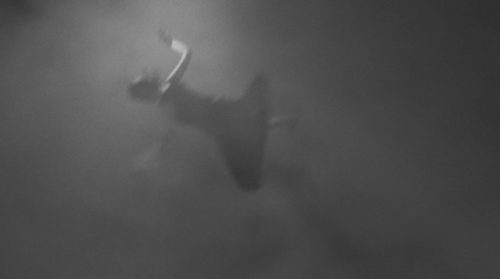There’s a line in your film referring to memory: “What stories are important, what should we choose?” So, why do you think some stories stick in our memories and others fade or distort?
The whole opening is referring to memory, and this whole intro segment is a bit pretentious, it’s written like that, like a speech almost, I’m not sure where I wanted to go with that, but kept it because of how I wanted the film to be in the end; all the attempts, and also because there was something nice about it, even though in itself it would feel too “important” or was trying to be at least. But to answer your question; I don’t know!
I had the strangest experience when making this film, which was also a result of my poor memory; I’d read an essay about modern narcissism which referred to the book “The Culture of Narcissism” by Christopher Lasch, where I had read that “oral sex is a sign of modern narcissism”, something I found fitting, because in the script I was writing, there was a scene with oral sex. The scene made sense in the theme of narcissism, great! I got the book, and had written in the script “Julie reads segment about oral sex from The Culture of Narcissism”, and went to the shoot in Denmark. I skimmed through the book on the boat over to Denmark, but couldn’t find the segment. So in Denmark, I had to find the contact info for the person who had written the essay I’d read – and I called her and asked where she had found the part about oral sex. She was almost shocked, she had never written anything about oral sex. She did write the essay about narcissism, but the part about oral sex had somehow been invented by my mind. It’s so strange, because I would have never thought about it had I not read it, and I didn’t read it. The phone call I had reminded me a lot of the phone call in the film. So I have no idea how memories stick, and I’m even more puzzled about memories that the mind invents. This is a ridiculously long answer to your question, and I feel I should apologize to you and anyone who reads it, because I know this is trivial and not important.
Was this really an authentic record of your process / attempts of writing and making a film for Dazed? How did all the disparate scenes come together in the end – did you have a well-thought out shots list or did the story reveal itself properly in the edit?
I would say that the film uses real life as its main ingredient but it has been reconstructed. I’m not sure if it will take away from the film if I tell you exactly what happened, also I don’t think that any of the events in my life are “important”, but I’m interested in how real life can become art or fiction, how one will digest something true and self reflective as opposed to the escapism of fiction (fiction as a genre). I also think the complete despair of fiction that Knausgård has proclaimed is interesting to look at, it’s kind of the opposite of what Lasch wrote about in 1979, I think he would be appalled to see the culture now. I don’t find it all negative, I like the more modern approach of questioning the art more, I kept disagreeing with what Lasch wrote in the book, I DO want to read about an author’s reflective thoughts surrounding his work and his art. I just read 10:04 by Ben Lerner which I felt was a perfect example of all this. I’ve just had my morning coffee, and I think that’s why I’m spewing out these long answers that doesn’t even answer your questions. And yes, the film was pretty strictly scripted and planned, but I was open to changing it in the edit, which we did to some degree.
Where did the opening quote come from: “Memory can exist in many states, it’s like water. Water can be very fluid and then at a certain point it can become ice and solidify…?”
It’s funny that you pointed out this quote, because I wrote the whole opening segment EXCEPT this. It’s from this lecture, but read by Henry Goodman who did the V.O. the english parts: https://www.youtube.com/watch?v=r1h4fB5HCd4
In fact there’re wonderful quotes throughout from the opening one, above, to the passage from Christopher Lasch’s book read by Julie. Do ideas come to you through reading and researching? Do you have a notebook full of quotes that have intrigued you that you then visually interpret through film?
No, the quotes came from research, and the Christopher Lasch-quote I had to re-write right before the take, so it would have the sentence about oral sex which my mind fooled me to believe was there.
Anything else you’d like to share?
I think I’ve over-shared already. Thanks!
LINKS:











